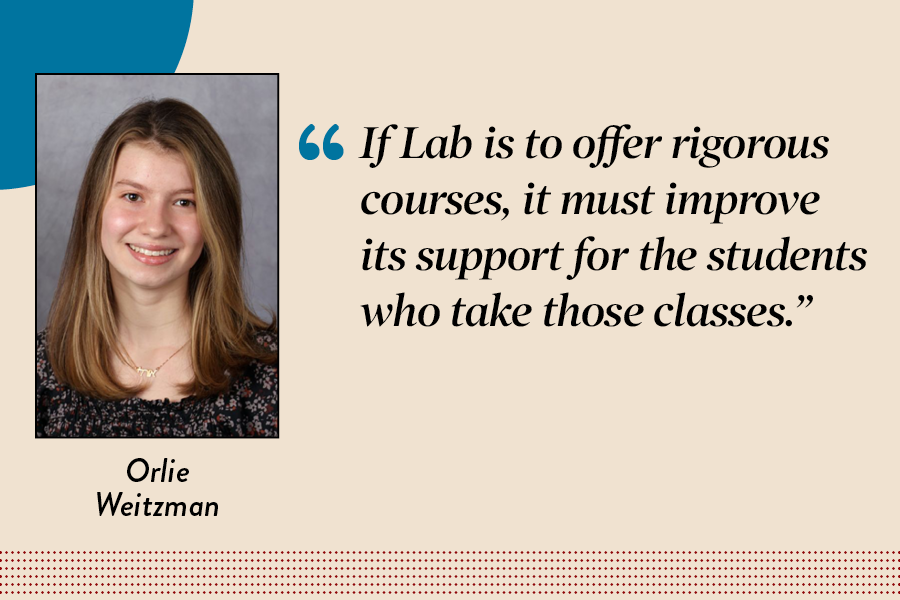Last year, I found the Advanced Algebra class tough. Math has never been my strongest subject, and everyone around me seemed to be breezing through the content, barely asking any questions on the nightly homework assignments and acing the weekly quizzes.
When I asked around, I discovered most of my peers had tutors. I realized that the unspoken rule at Lab is that many students need outside help if they want to take the most challenging classes. Of course, some students are exceptionally gifted and others have friends or relatives who can help them. But these are unusual cases.
Lab prides itself on the number of students taking accelerated courses. Realistically, some are going to need extra support, but the school should both be more transparent about how many students receive that additional help and offer more help connecting students with tutors.
Tutoring is ubiquitous at Lab, especially when it comes to math, and that could have serious consequences for Lab’s stated equity goals. For some families, fees for additional tutoring are within their budget, but for others, the idea of paying a tutor on top of Lab tuition is simply not feasible. This potentially pushes accelerated classes out of reach for some students because of their family finances. If Lab is to offer rigorous courses, it must improve its support for the students who take those classes.
While Lab does offer some affordable tutoring, these services are poorly advertised, and many students say they have never heard of them. Learning and counseling has a list of peer tutors — U-High juniors or seniors — and also keeps a list of vetted professional tutors and tutoring agencies that offer sliding scale fees based on a family’s income. U-High should work to further publicize these services, perhaps in one of the emails to families.
The tutoring phenomenon highlights a wider cultural problem that is not solely Lab’s fault. Parents and peers often expect students to push themselves academically, taking the most advanced classes across all subjects. The Student and Family Handbook recommends that students take a maximum of three advanced classes, but few students actually know that. Many take more.
High achievement is rewarding and can allow students to dig deeper into subjects they love and pursue academic passions. But it also comes with hidden costs, both mental and financial. It’s time to have open conversations about the way in which widespread tutoring underpins Lab’s academic performance.






















































parent • Oct 27, 2024 at 4:40 pm
bold and brilliantly stated
parent • Oct 27, 2024 at 4:26 pm
bold and brilliantly stated. thank you for bringing light to this hidden truth.
Frank • Oct 17, 2024 at 11:52 am
As a parent, I agree with Orlie’s opinion that school must effort to foster more transparency in the courses and the work they require from students who take them. Still, students should speak out for themselves as they are the best persons to voice how much they might need for assistance. I appreciate that Orlie shares her personal experience.
Alastair • Oct 12, 2024 at 12:47 am
A thought-provoking article, Orlie, which highlights just one of education’s perpetual struggles to deliver a level playing field for all.
louise yamada • Oct 11, 2024 at 3:41 pm
perhaps the prior teacher in the subject, in this case Math, might guide the student as to whether the advanced class may be too advanced for him/her without a tutor.
if the student is vetted in this way, perhaps there could be a weekly after hours opportunity for the teacher to work with those students who nevertheless need additional help.
it seems counter-productive to push students to take something for which they expectedly will need a tutor; perhaps there might be an intermediate level class!!
Maureen Schmidt • Oct 11, 2024 at 10:29 am
Thank you for this important and often unspoken truth, Orlie Weitzman. Ubiquitous doesn’t mean transparent… or equal.